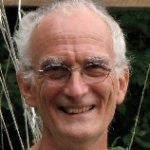I Will Make Life Good: An Indigenous Oath
I attended a recent swearing-in of attorneys to the Navajo Nation Bar Association. My friend and colleague, Rodina Cave, was among them. The ceremony brought back memories of my days in the start-up of Dinébe’iiná Náhiiłna be Aga’diit’ahii, Navajo Legal Services. Hearing Navajo spoken again was exhilarating.
A highlight was when the new attorneys recited the oath of office, Naaltsoos bik’ eh go ‘ádee hadisdziih. It begins with an affirmation to “support, obey, and defend” the law, and includes other familiar phrases, such as to “adhere to the rules of professional responsibility.” It starts to differ from oaths typical to state and federal bars with an affirmation to “respect the courts, the judges and peacemakers.” I don’t know of any non-Native attorney oath to respect peacemakers.
The big difference in the Navajo Nation oath, which sets it apart from every state and federal oath, is the concluding affirmation: “With this, I will make life good.”
Where else do attorneys pledge, as a condition of admission to practice, that they will “make life good”? The phrase filled me with a sense that life is good, that humans have the capacity to acknowledge all our relations and commit ourselves to this good life. The Navajo oath of office is built on a way of life completely different from the dominant view of Western civilization: It expresses commitment to life rather than to self-interest. Chief Justice Yazzie emphasized in his remarks that the commitment to good life is for all people, not just the individual.
This basic commitment is not only Navajo. It is common to a diversity of Indigenous peoples around the world. It is a key element—perhaps the key element—differentiating Indigenous worldviews from the extractive, individualist, dominating view that characterizes colonial and capitalist regimes.
Referring to this aspect of Indigenous communities in the Andes, Brian Davey points out in his report on the 2011 Beyond Growth Conference in Berlin that “the summary words, ‘Good Life’, nowhere near adequately convey what is meant” by the indigenous “cosmological visions and ancestral traditions” that “decisively break from western concepts of development” by putting the “relationships of humans and communities to Nature as their central point.”
The Indigenous understanding of Good Life “involves striving for harmony and balance rather than dominance.” It is “the very antithesis of the idea of consumerist wellbeing—which is largely focused on material possessions so that people can profile themselves in a status hierarchy over and above others.”
He adds, “It will be noticed that this is not ‘sustainable development’, nor can it even be described as designing and arguing for a ‘green economy.’ Neither is it the same as putting decarbonising the economy into focus as a central aim. It puts into question, something deeper—the value…or otherwise…of all our european concepts of modernity in which nature is ‘out there’ as an external store of resources and a sink, available for human use. This is a different voice, coming from a different cultural viewpoint that is not part of the western tradition.”
The Navajo oath of office, just by including this single phrase—”I will make life good”—exemplifies and calls to our attention that Navajo culture, Navajo way of life, Navajo cosmology are alive and well, even in the midst of a super-western juggernaut of colonial and neo-colonial ‘globalization.’ The inclusion of this phrase—”I will make life good”—is a sign to the world that the Navajo are continuing to put their own ideas into the legal process, even as they have borrowed from western judicial practices.
Indigenous peoples and communities are not static; they interact with and borrow from non-Indigenous cultures just as those other cultures borrow from them, in the ever-changing, impermanent reality of life on Earth. Indigenous peoples are part of ongoing history, not stuck in some idealized ‘past.’ Their ways of life and traditions are dynamic, like those of any other society. The difference between Indigenous societies and industrial, capitalist societies is not that the former are ‘traditional’ and the latter ‘modern,’ but rather that the content and structures of the former are focused on balance with Earth, while the latter are on a suicide course of imbalance.
Some people say it is already too late to stop the suicide; others say we still have a chance to survive into future generations. From an Indigenous standpoint, there is no question: the way to live is the same now as always. If Earth is cleansing Herself of destructive, unbalanced ways, we continue, as always, to walk in balance with Her. Our lives and Hers are inextricably the same. No matter what is ahead, we will make life good.
Peter d’Errico graduated from Yale Law School in 1968. Staff attorney in Dinébe’iiná Náhiiłna be Aga’diit’ahii Navajo Legal Services, 1968-1970. Taught Legal Studies at University of Massachusetts, Amherst, 1970-2002. Consulting attorney on indigenous issues.
